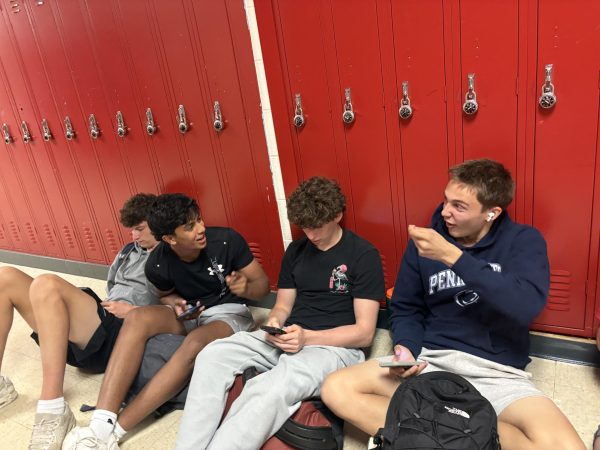Alternative paths to getting college degree
Photo by DonkeyHotey used with permission from Google Commons
Debt follows students after graduation.
When choosing a path to take after high school graduation, students may feel pressured into going to college as it’s often seen as the default “next step.” Because of the common misconception that you can’t get a well-paying or good job without a degree, students may feel that they don’t have a choice, or that going to college immediately is the logical thing to do. In truth, everyone is different, college is not always going to be the right decision for every student, nor is it a guarantee of a well-paying job and successful career in the future.
When choosing a next step after high school, it’s important to weigh the pros and cons of each option and consider individual priorities. Firstly, let’s determine some upsides and downsides of going to college traditionally. Going to college and getting a degree does tend to have important benefits, especially in the long term. For example, according to CNN, research from the Federal Reserve Bank of New York found that “the average college graduate earns $78,000 a year compared to the $45,000 earned by someone with only a high school education.”
Also, a college degree is required for many entry-level jobs. According to a study done by the Georgetown Public Policy Institute, 65% of jobs now require postsecondary education and training beyond high school, and 35% of jobs require at least a bachelor’s degree.
It’s also important to take into consideration the connections that you can make in college. Many opportunities in life are simply about knowing the right people and having strong connections. It’s likely that if you make connections in college, they’ll benefit you later, and they may even help you secure a good job.
However, these benefits don’t mean that college is right for everyone, and it definitely comes with drawbacks, too. Getting a degree can also come with a huge financial burden. According to U.S News data, the average student loan debt for recent college graduates is more than $30,000. According to VOA News, “Two-thirds of Americans have a major regret relating to their college experience, according to a survey of 250,000 Americans who hold at least a bachelor’s degree. The biggest regrets for college graduates are the huge debts they’ve racked up. Student loan debt rose from $600 billion a decade ago to more than $1.4 trillion by the end of 2018.”
Not only that, but many of the benefits you get from going to college also apply if you have only a high school diploma. You can still make great connections, especially if you’re travelling or working at an internship. While it may be harder, you can still find entry-level jobs that don’t require a degree. And since you’d most likely be unable to work a full-time job while still going to college, you’ll be making more in the short term.
College can also be mentally exhausting for a number of reasons. According to the APA, 61% of college students seeking counseling report anxiety. “Other concerns include depression (49 percent), stress (45 percent), family issues (31 percent), academic performance (28 percent) and relationship problems (27 percent).”
So, going to college traditionally has its advantages and its disadvantages, what about the other options?
GAP YEAR
One option for those who want to go to college, but not immediately, is a gap year. A gap year is when the year after high school graduation is used to travel, work or learn outside of school. A gap year can be used to help you collect your thoughts, learn about yourself and the world around you, and plan for your future.
TRAVEL
This option may seem too much of a luxury for some, but taking a gap year to travel, or travelling with no plan of going to college, can be a lot cheaper than it may seem. Especially if you know or are learning a language, working in a different country is a great way to not only get job experience, but learn about communication, language and culture.
If you were planning on going to college to get a language degree, you may want to consider travelling instead. While you won’t get a degree, spending time surrounded by a language is a much more effective way of learning. You don’t always need a degree to get a job in language and teaching English to others is a good way to make money while improving the language skills of yourself and others.
INTERNSHIPS
This option is likely one of the best ways you could use your time as an upperclassman or after graduation. Internships are a great way to learn about what you like and dislike without making the commitment of working a full-time job. They provide you with work experience and communication skills, as well as preparing you for the workplace.
WORKING AND SAVING
While working and saving money may not be a great long-term plan for a high school graduate, working after graduation is a great way to prepare yourself for the future, even if your job is in retail. Not only will you get job experience and communication skills, but you’ll also be saving up money and building a safety net for yourself.
The pressure for high school graduates to go to college no matter what is often hard to deal with. It’s important to remember that there are always options when it comes to your future, and you can be successful if you apply yourself on whatever path you choose.
Your donation will support the student journalists of Thomas S. Wootton High School. Your contribution will allow us to purchase equipment and cover our annual website hosting costs.
Senior Isaac Muffett is the opinions editor in his fourth year on the Common Sense staff. When he's not writing or researching, he spends his free time...







